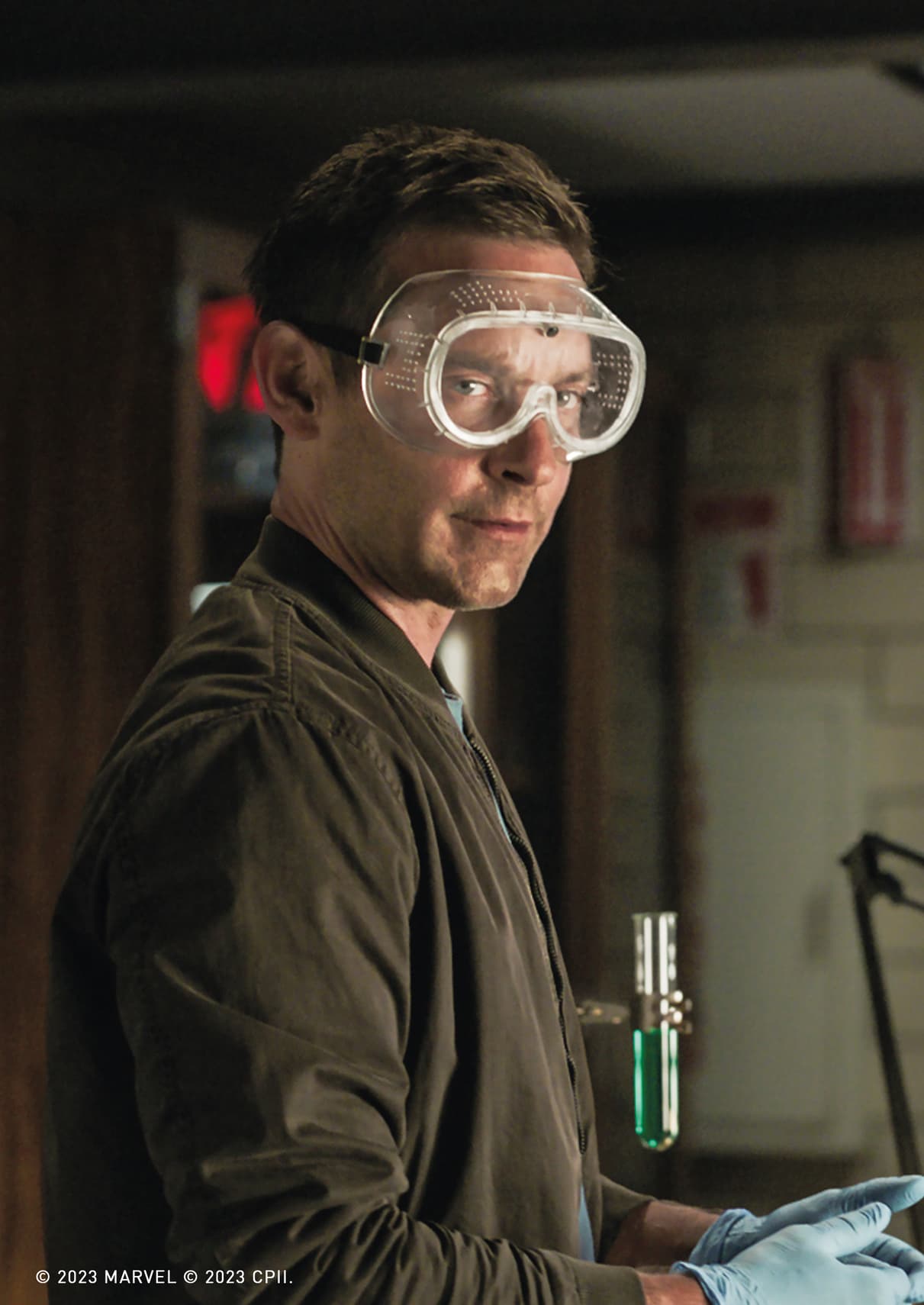
Welcome!
Science 2024-2025
Welcome to Mrs. Barnes' Science Class

Science Help:
Mondays and Fridays before school in my classroom for 5th and 8th graders. Please email me to let me know your child is attending so I can gather the appropriate materials to assist them in their science work.
8th Grade
The 8th-grade curriculum covers a diverse range of scientific topics and emphasizes important skills. Here's a summary of the topics students will be studying and the skills they will be building:
-
Lab Safety:
- Understanding and implementing safety procedures in a laboratory setting.
- Learning to handle chemicals and equipment safely.
-
Motion:
- Exploring the principles of motion, including speed, velocity, acceleration, and motion graphs.
- Studying Newton's laws of motion and their applications.
-
Forces:
- Understanding the concept of forces and how they affect objects.
- Investigating various types of forces, such as friction, gravity, and tension.
-
Energy:
- Learning about different forms of energy, including kinetic, potential, and thermal energy.
- Exploring the law of conservation of energy.
-
Magnetism:
- Studying the properties of magnets and magnetic fields.
- Investigating the applications of magnetism in everyday life and technology.
-
Cellular Biology:
- Exploring the structure and function of cells.
- Learning about cell organelles, cellular processes, and cell types.
-
Mutations and Evolution:
- Understanding genetic mutations and their role in evolution.
- Studying the principles of natural selection and adaptation.
-
The Nervous System:
- Investigating the structure and function of the nervous system.
- Learning about neurons, synapses, and the brain's role in processing information.
-
Note-taking Skills:
- Developing effective note-taking techniques to organize and retain information.
- Enhancing the ability to summarize key points from lectures and readings.
-
Collaboration within Groups:
- Building teamwork and collaboration skills through group projects and activities.
- Learning to communicate effectively, share responsibilities, and achieve common goals.
-
Laboratory Experiments:
- Gaining hands-on experience with scientific experiments and investigations.
- Developing skills in data collection, analysis, and drawing conclusions.
This curriculum provides a comprehensive understanding of fundamental scientific concepts while also fostering important skills like collaboration and note-taking. It will prepare students for more advanced scientific studies in high school and beyond, as well as enhance their ability to work effectively in a team and conduct scientific research.

5th Grade Lab
-
Lab Safety:
- Understanding the importance of safety measures in a laboratory setting.
- Learning about common lab hazards and how to prevent accidents.
-
Observations and Inferences:
- Developing the ability to make detailed observations.
- Distinguishing between observations and inferences in scientific investigations.
-
Cause and Effect:
- Identifying relationships between variables and outcomes.
- Understanding how changes in one factor can cause changes in another.
-
Patterns and Variables:
- Recognizing patterns in data and phenomena.
- Identifying and manipulating variables in experiments.
-
Buoyancy:
- Understanding the concept of buoyancy and how it relates to objects in water.
- Exploring the principles of density and displacement.
-
Matter:
- Learning about the properties and states of matter (solid, liquid, gas).
- Exploring changes in matter through physical and chemical processes.
-
Motion:
- Studying the principles of motion, including speed, velocity, and acceleration.
- Investigating the laws of motion, such as Newton's laws.
-
Animal Diet Investigations:
- Exploring the dietary habits and nutritional needs of different animal species.
- Understanding the importance of a balanced diet for animals.
-
Animal Species:
- Learning about various animal species, their characteristics, and habitats.
- Studying the diversity of the animal kingdom.
-
The Water Cycle:
- Understanding the processes involved in the water cycle, including evaporation, condensation, and precipitation.
- Recognizing the importance of water conservation.
-
Earth Science:
- Exploring fundamental concepts in earth science, including the structure of the Earth, plate tectonics, and geological processes.
-
Clouds:
- Identifying different types of clouds and their significance in weather forecasting.
- Understanding cloud formation and their role in the water cycle.
-
Our Solar System:
- Studying the structure and characteristics of the solar system, including planets, moons, and the Sun.
- Investigating celestial phenomena and space exploration.
-
21st-Century Skills:
- Developing skills such as critical thinking, problem-solving, collaboration, and communication.
- Applying these skills to real-world scenarios and scientific investigations.
This curriculum provides a well-rounded education in both scientific principles and practical life skills, preparing students for a deeper understanding of the natural world and equipping them with valuable skills for the 21st century through hands on activities.

Life Skills
-
Financial Literacy:
- Budgeting: How to create and stick to a budget.
- Saving: The importance of saving money and different types of savings accounts.
- Banking: How to open and manage a bank account.
-
Basic Cooking and Nutrition:
- Cooking skills: Preparing simple, healthy meals.
- Nutrition: Understanding food groups, portion control, and making healthy food choices.
-
Personal Hygiene and Self-Care:
- Proper hygiene routines: Bathing, dental care, skincare, etc.
- Self-care: Techniques for managing stress and maintaining mental and emotional well-being.
-
Time Management and Organization:
- Time management skills: Planning and prioritizing tasks.
- Organization: Tips for keeping spaces and schedules organized.
-
Communication Skills:
- Effective communication: Listening, speaking, and non-verbal communication.
- Conflict resolution: Strategies for resolving conflicts peacefully.
-
Basic First Aid:
- First aid essentials: Handling common injuries and emergencies.
- CPR and AED basics: Introduction to life-saving techniques.
-
Digital Literacy:
- Internet safety: Protecting personal information online.
- Responsible technology use: Understanding the implications of digital footprints.
-
Career Exploration:
- Exploring career options: Identifying interests and strengths.
- Resume building: Creating a basic resume and cover letter.
-
Community Engagement:
- Volunteerism: Opportunities for community service.
- Civic responsibility: Understanding the role of citizens in society.
-
Relationships and Social Skills:
- Building healthy relationships: Friendship, family, and peer relationships.
- Respect and empathy: Understanding and practicing tolerance and inclusivity.
-
Goal Setting and Decision Making:
- Setting SMART goals: Specific, Measurable, Achievable, Relevant, and Time-bound.
- Decision-making skills: Making informed and responsible choices.
-
Personal Safety:
- Safety awareness: Recognizing potential dangers in various situations.
- Emergency preparedness: Knowing what to do in emergencies.
-
Consumer Skills:
- Consumer rights and responsibilities: Understanding rights as a buyer.
- Making informed purchases: Evaluating products and services.
-
Environmental Awareness:
- Sustainability: Understanding environmental issues and conservation.
- Eco-friendly practices: Ways to reduce one's environmental footprint.
-
Diversity and Inclusion:
- Embracing diversity: Recognizing and respecting differences.
- Promoting inclusivity: Fostering a welcoming and accepting community.
The specifics of the curriculum may vary, but an 8th-grade life skills elective typically aims to equip students with essential practical knowledge and skills to navigate various aspects of life as they transition to high school and beyond.
Hello, Parents/Guardians & Students,
Welcome to my teacher bio!
To get to know me a little better, I would like to share with you my inspiration for becoming a teacher. I have always loved the idea of becoming a teacher since I met my preschool teacher, Mrs. Hulnik. Her kind smile and positivity could brighten anyone’s day. The activities she created were engaging and crafty. It has been so long ago, but the admiration still remains. The seed for the love of learning was planted and continues to grow to this day; I hope that my love for learning and the understanding of its importance will spread to my students. In addition, most of my family members are teachers and of a scientific background. Perhaps it is genetic!
As a student, I attended Felician University with a major in both Biology and Education for grades K-12. I graduated cum laude with an award for exceptional student teaching. While I attended Felician University I was a resident assistant for the students living on campus, for three and a half years. I had completed my student teaching in Bishop George Ahr High School, now St. Thomas Aquinas, in Edison New Jersey, and was immediately hired as a substitute art teacher. The following year I was asked to teach full-time. While teaching at Bishop Ahr, I taught biology, chemistry, forensics, as well as art.
I had the pleasure of joining the Joyce Kilmer team and taught 7th and 8th-grade science as well as robotics! While in Joyce Kilmer, I had the pleasure of hosting homework club, morning library club, gaming club, maker space club, and green club. This year I am teaching 8th-grade science, 5th-grade labs, life skills, and middle school advisor (MSA).
If needed I am able to be contacted via Parent Square.
I am excited to meet everyone and plant the seeds of inspiration and love for science and education!
Posts




Ch 2 Answers Study Guide Physics










